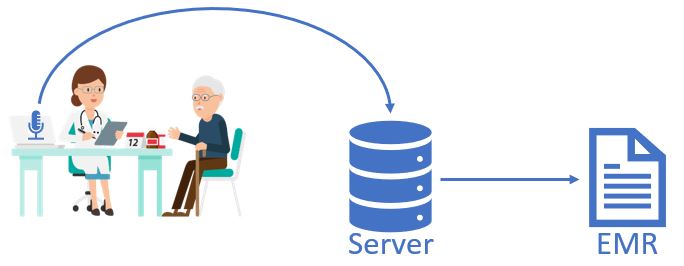Physicians who use medical scribes show greater job satisfaction, decreased burnout, and increased efficiency; however, medical scribes are expensive. Multiple studies have shown that doctors are increasingly spending more time in front of screens than face to face with their patients. Documenting the details of an encounter is consistently cited as a contributor to physician burnout.
Associate Professor John Sartori (Electrical and Computer Engineering; MSI PI) is leading an interdisciplinary team that aims to create software that provides the benefits of an in-person scribe with technology that can automatically navigate and populate the fields in an electronic medical record (EMR) based on the conversation between a healthcare provider and patient in real time. AmbiScribe will leverage natural language processing, automatic speech recognition, artificial intelligence, and deep learning to create a digital medical assistant. This project recently received a UMII Seed Grant.
Research Computing partners:
- University of Minnesota Informatics Institute
